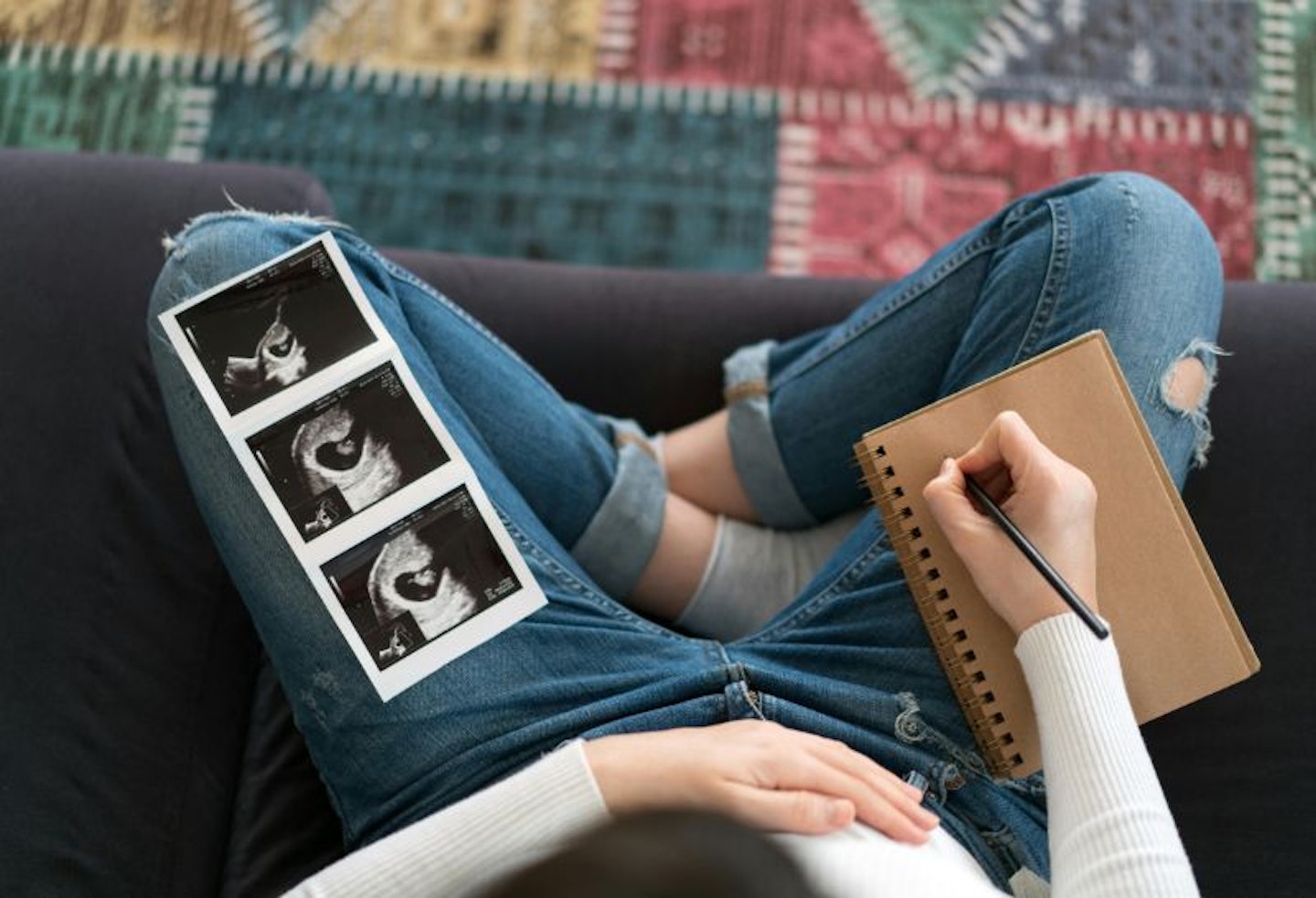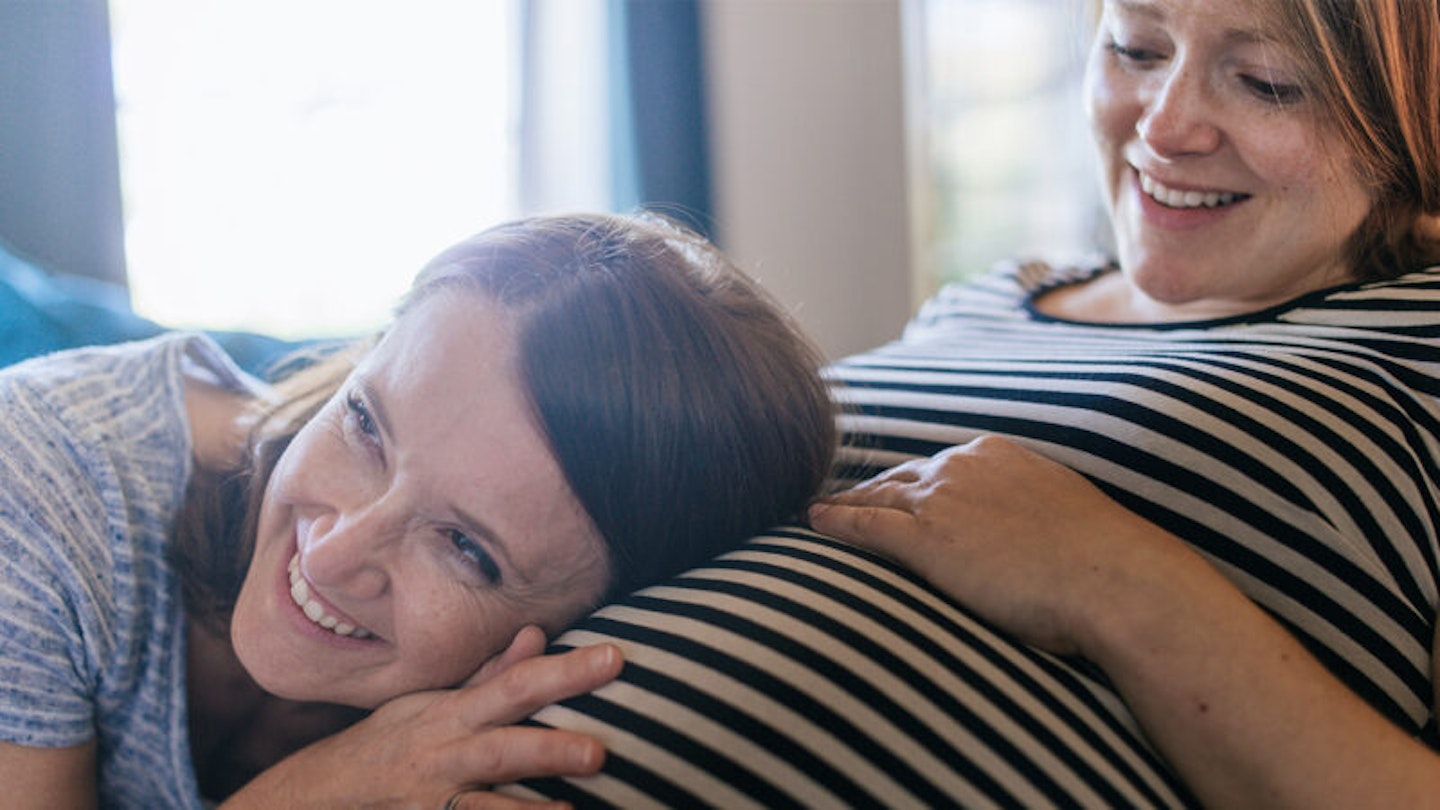From singing lullabies to massaging your baby bump, find out the best ways to bond with your bump before birth and create a connection that will be just the beginning of a long relationship with your child.
While the most important bonding will come when your baby is born, when it comes to bonding with your baby, there’s no time like the present and that includes when you're pregnant. It's also a chance for your partner to bond too, which can have the added benefit of helping the two of you come closer.
So, months before you clap eyes on your little bundle, here's how you can boost the bond between you!
How to bond before birth with your baby
Sing and talk to your bump
From around 20 weeks your baby will be able to hear your heartbeat clearly and start to recognise voices from the womb. You can start singing lullabies and chatting to them from day one but they'll now be able to hear your voice and some research suggests your baby can recognise their mother’s voice, so regularly nattering away to them will boost bonding after birth. This can include chatting to your partner too so it's a great excuse to sit down and have a really good conversation.
Listen to music
There’s nothing quite like music to soothe you, and it’s exactly the same for your little one – even in the womb. Babies normally prefer music with a strong, regular beat as it reminds them of your heartbeat. Whether it’s you singing to your bump or dad playing his favourite CD on repeat your baby will start to recognise the different rhythms and noises. Studies show that music also contributes to your baby’s foundation for language skills, so it’s the perfect excuse for putting your feet up and listening to your favourite tracks.

Touch your bump
You probably can’t keep your hand off your bump whether it’s a protective hand resting on it or stroking at the end of the day. But research has found that babies can feel you rubbing your belly and once your baby starts to feel your touch, from about 20 weeks, they are able to distinguish between their parents' touch compared to that of a stranger. Cute! Start communicating with your little one nice and early by rubbing your bump when they move and build up a conversation of kicks and rubs between you.
Massage
Massaging your bump is safe from 3 months and it's not only a great way to bond with your baby but to wind down and relax. Oils like lavender, mandarin or rose are all safe to use and make for an indulgent and soothing massage or you could use a stretch mark oil to soothe itchy, stretching skin. You could get your partner to do it for a relaxing experience or head to one of the UK's best spas for pregnancy massage.
Get a photo
Demi Moore might have been the first, but she’s not the only one to capture her beautiful bump forever. And, while you might not be on the cover of an international magazine, having your photograph taken during pregnancy can be an amazing way of remembering it as well as bonding with your new bump. If posing isn’t your thing, why not keep a photograph of your baby’s first scanwith you? Keep it in your purse or on your desk at work so you can sneak a peek of your little one whenever you want.

Keep a journal
A pregnancy journal is a lovely way to record your memories of your pregnancy and can help you to pay more attention to what's happening with your body and your baby. You can reflect on your growing baby bump and it can be a great way to interact with a baby bump by thinking and talking to them while you write.
Get moving
Exercises like yoga will keep you feeling fit and healthy during your pregnancy and can also have a positive, calming effect on your baby. The movement of your body helps to rock him in the amniotic fluid and the endorphins released during exercise will pass across the placenta, too. Exercise during pregnancy is a great way to keep you fit and healthy and has a huge number of benefits for both body and mind.
Swimming
Heading to the pool can be relaxing for you and for baby, and can also give you an idea of what it feels like for your little one swimming around in your bump! Whatever stage of pregnancy you're at, swimming when pregnant can take the weight off and ease back pain, help with swelling, improve blood circulation and help you stay fit and active through your pregnancy. You could even find an aqua-natal yoga class to help reduce stress and also meet some fellow mums-to-be.

Family bonding
Even though babies build a biochemical bond with their mama before they leave the womb, bonding with your bump is something the whole family can get involved in. If you already have kids, encourage them to speak to your bump to get them excited about a new little brother or sister. You could even give your baby bump a nickname, if you haven’t chosen a name yet, which will make it even more exciting and special.
Respond to baby's movements
From around 16-24 weeks you'll probably start to feel your baby move and this offers a lovely opportunity to bond before birth with your baby. You can try to prompt baby to move in the womb or just respond to their movements by touching or talking to your bump when you feel them wriggle around. You might even find that they start to move in response to your touch.
Can babies feel you rubbing your belly?
Your baby is growing and developing all the time and as their senses develop, they'll start to feel and hear more of the world around them. That means you can start to interact with your baby bump and so can the people around you.
Touch
Between week 21 and week 25 of pregnancy, your baby's sense of touch develops and they may be able to feel pressure from outside the womb and respond to your touch.
Sound
Your baby's hearing develops in the womb between week 15 and week 18 of your pregnancy. They'll be able to hear sounds in your body such as your heartbeat at first.
Between week 25 and week 28 of pregnancy, your baby will start to hear noises from outside your body. You might find that they jump at loud noises or are soothed by your voice and talking them can be a wonderful way to bond before birth with your baby.
Sight
Your unborn baby's eyes won't start to open until around week 25 - week 28. They'll continue to develop after birth.
Rebecca Lancaster is a Digital Writer for Mother&Baby, drawing on ten years of parenting her two children to help others navigating their own parenting journey. As a freelance writer, she spent ten years working with leading lifestyle brands, from travel companies to food and drink start-ups, and writing everything from hotel reviews to guides to the best British cheeses. She’s particularly interested in travel and introducing her children to the excitement of visiting new places, trying different foods (less successfully) and experiencing different cultures.
